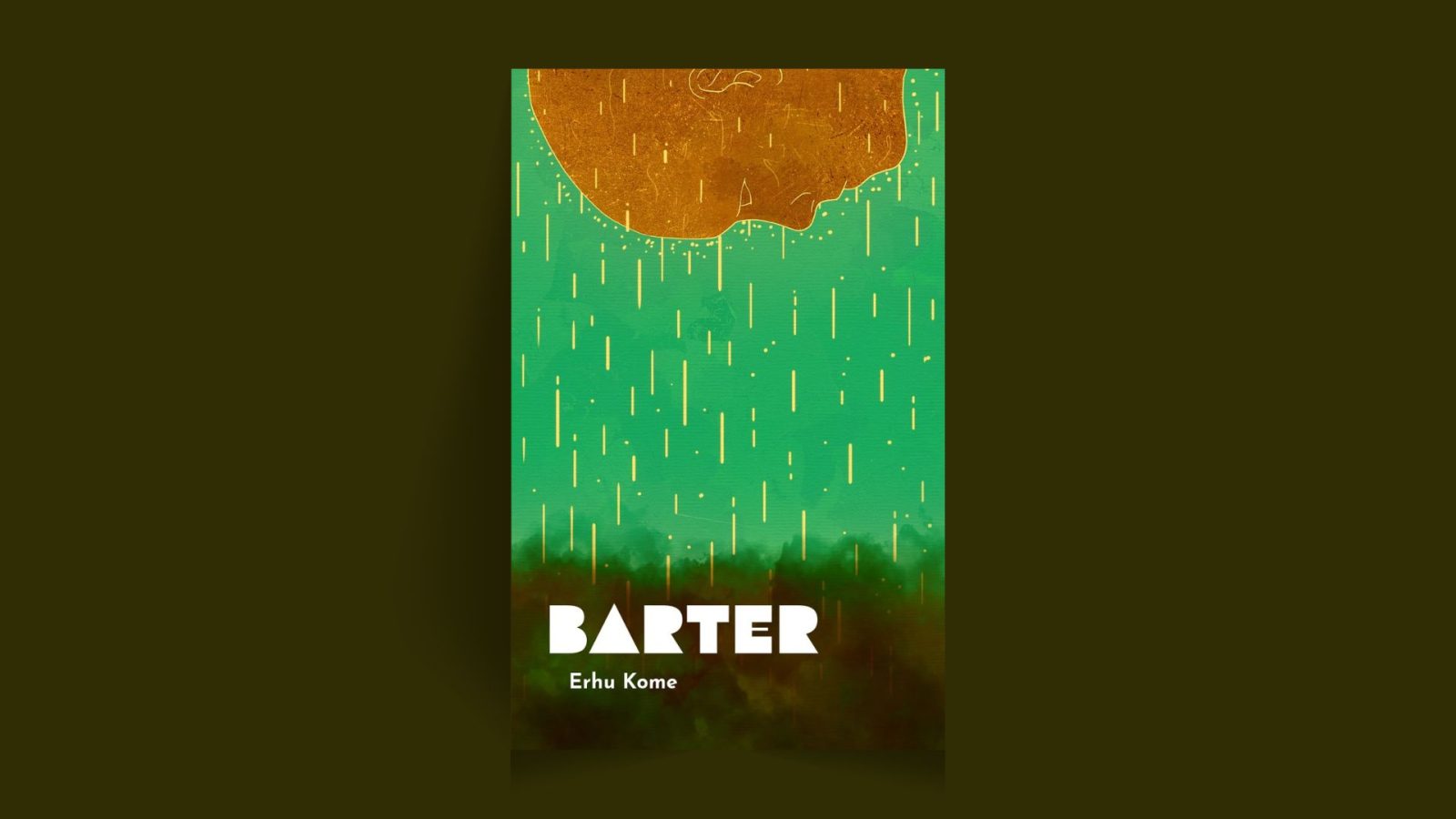Barter showcases the Erhu Kome’s commitment to expanding the boundaries of African speculative fiction.
By Evidence Egwuono Adjarho
Erhu Kome’s debut novel, The Smoke That Thunders, introduced readers to her signature storytelling style: a blend of the otherworldly and the real—an approach that drew me in from the very beginning. Her female protagonist, who challenges societal norms and the traditionally male-defined concept of heroism, keeps the plot both engaging and thought-provoking.
However, despite the strong emotional arc of the central character, the novel maintains a certain distance from the reader, due in part to its unfamiliar setting and a lack of vivid imagery that might otherwise have brought the world more fully to life.
Set in a speculative post-apocalyptic world, her recent book, Barter, envisions a planet reduced to a few surviving human communities following a catastrophic climate event: a permanent drought. Rain has ceased entirely, and water–now the most essential resource for survival–is scarce and fiercely contested.

Each community is responsible for securing water for its members, a task already difficult in itself. This is further complicated by the appearance of dangerous, carnivorous creatures known as “The Smelly Ones”, which pose a mortal threat to humanity. The leaders of the communities must find ways to obtain water without falling victim to these creatures.
Barter opens in media res, and we are immediately thrust into tense situations without sufficient context, making the initial chapters somewhat disorienting and jarring to read. This sense of confusion persists until nearly halfway through the book, when the pieces of the puzzle begin to fall into place.
At first, we are introduced to two seemingly unrelated characters: Zane, the leader of one of the communities, and Beibi, a character who appears to live in an entirely different world. Both are grappling with the same crisis–the scarcity of water–but the connection between them is not immediately clear.
Kome deliberately keeps Zane and Beibi’s storylines separate for a significant portion of Barter, which creates intrigue but also contributes to the reader’s disorientation. Eventually, it is revealed that Zane and Beibi are, in fact, the same person, existing in different timelines. Zane represents the present, while Beibi’s storyline is situated in the past. It is after this plot twist that the pacing becomes noticeably more fluid.

One of the most powerful aspects of African speculative fiction lies in its thematic undercurrents, where stories often serve as vehicles for commentary on real-world African social, political, and sometimes spiritual matters. In Shigidi and the Brass Head of Obalufon (2023), for instance, Wole Talabi uses Yoruba spirituality and folklore as a foundation to explore questions of African identity, heritage, and mythology. His characters, whose names draw from Yoruba and Igbo cultures, offer readers a rich immersion into the nuances of African deities.
In Barter, Erhu Kome’s plot, at some point, borrows from Yoruba mythology, specifically through the allusion to “Oya”, the goddess of storms, lightning, and wind. However, this reference is not as deeply integrated into the story as one might expect. Readers, whether familiar or unfamiliar with Yoruba mythology, might struggle to decipher the significance of this introduction to the novella’s plot, making it seem as though the inclusion was an afterthought.
Character development is another area where Barter falls short. Zane, the protagonist, is introduced as the leader of his community, and we are given brief glimpses into his past life. However, these glimpses are not sufficient to fully flesh out his character. He, along with the other characters we encounter in the book, lacks emotional depth and complexity. As a result, it becomes difficult to form strong opinions about them, whether to admire, dislike, or empathise with their choices. Consequently, the flatness of the characters weakens the reader’s emotional engagement with the story.

Stylistically, Barter bears resemblance to the author’s debut young adult novel, The Smoke That Thunders. The writing is clear and accessible, avoiding overly complex language or structures. For some, this straightforward style may be a welcome relief.
However, the same simplicity that makes Barter readable also causes it to feel underdeveloped at times. The language does not always rise to match the gravity or richness of the story’s content. In fact, the prose feels more suited to a young adult novel, even though Barter is nowhere close to being one.
Kome has a gift for constructing thought-provoking scenarios and integrating African cultural elements into speculative fiction. Barter showcases the author’s commitment to expanding the boundaries of African speculative fiction. Overall, the novella is an interesting read, even if it doesn’t fully satisfy.
Evidence Egwuono Adjarho is a Gen Z who loves God. She is passionate about the power of African literature and dedicates her time to amplifying it through book reviews and video contents. Connect with her on Instagram, X, Facebook, and LinkedIn: @evidence_egwuono



